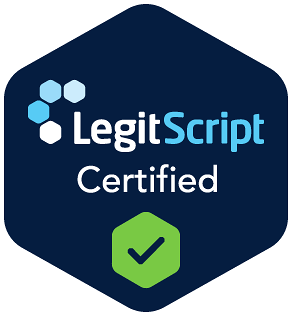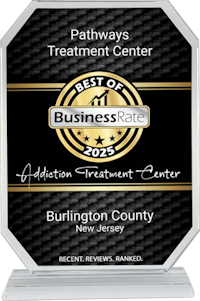A Relapse prevention plan is the most essential tool of recovery and sobriety after rehab. We integrate these principles for long-term sobriety. Pathways Treatment Center is your go-to for the most comprehensive relapse prevention techniques and addiction treatment in the country. Here, we’ll help you get started by laying out the most vital things you need to know to create a plan of attack that works.
What is a Relapse Prevention Plan?

A relapse prevention plan is a sequence of tools, lessons, and methods that make up your plan of attack against addiction relapse. These tools are your essential playbook to fight off cravings or urges to relapse that rear their ugly head. That’s why our committed team prioritizes equipping you with these tools as your primary impulsive response mechanism to relapse urges. Our superlative therapeutic conduct equips you with all the primary and secondary weapons you need to combat relapse.
One of the first challenges many face after rehab is dealing with triggers. These are situations, people, or emotions that can lead to cravings or relapse. It’s crucial to identify personal triggers and develop strategies to cope with them. This might involve avoiding certain places, limiting contact with specific individuals, or finding healthier outlets for stress. Journaling can be an effective tool for recognizing patterns in behavior and emotions, allowing individuals to pinpoint what situations may provoke cravings. Additionally, practicing mindfulness techniques, such as meditation or deep-breathing exercises, can help manage anxiety and reduce the likelihood of succumbing to triggers.
Having a strong support network is essential for maintaining sobriety. This network can include family, friends, therapists, and support groups. Regularly attending support group meetings, like Alcoholics Anonymous (AA) or Narcotics Anonymous (NA), can provide encouragement and accountability. Sharing experiences with others who understand the journey can be incredibly healing.
Beyond traditional support groups, engaging with community resources, such as sober living houses or recovery-focused events, can foster new friendships and connections. These relationships not only provide emotional support but also offer opportunities for social engagement that reinforce a sober lifestyle.
Creating a daily routine can provide structure and stability. This routine should include time for work or school, self-care, and social activities. Incorporating healthy habits such as exercise, balanced meals, and sufficient sleep can also contribute to overall well-being. A well-rounded routine helps individuals stay focused and reduces the risk of falling back into old habits.
Additionally, setting small, achievable goals within this routine can boost confidence and provide a sense of accomplishment. Whether it’s committing to a new hobby, volunteering, or simply dedicating time to relax and recharge, these activities can enrich daily life and foster a positive mindset. Engaging in creative outlets, such as art or music, can also serve as powerful tools for expression and healing during this transitional phase.
Why is a Relapse Prevention Plan So Important?
Having an extensive plan of action against addiction is your most important asset throughout and beyond recovery. Here are several reasons why having an ever-present plan against relapse is so important.
Addiction and relapse urges primarily serve as a coping mechanism for life occurrences and tragedies. These hardships understandably induce unavoidable heartache. However, what is manageable is how you respond to the heartache with your actions. That’s where having a relapse prevention game plan shines most. These plans initiate proactive responses to these hardships as positive coping strategies for relapse. These mechanisms help you deal with problems in healthy ways rather than resorting to substances to cope.
One of the biggest aspects of relapse prevention involves the activation of your support team structure on a moment’s notice. That’s precisely why our relapse teaching techniques are deeply focused on building up your support structure. This means incorporating your loved ones and specialists you trust most into your preventative approach deployment process. Family therapy in New Jersey is also an important part of this process, helping your loved ones be your long-term recovery support as your greatest addiction relapse prevention plan weapon.
If you’re wondering how to sustain long-term sobriety, the answer is your game plan for relapse prevention. Everything you learn in detox and recovery is added to your relapse prevention toolbox so you can independently implement them. All of your training, guidance, and therapy revolve around establishing a secure plan for preventing relapse in recovery and beyond. Connect with us now to begin adding to your active toolkit to combat addiction cravings and urges.
These vital plans of action against addiction cravings give you total control of your present and future. Before these plans, you were at the mercy of difficult substance dependency. Equipped with these blueprints for sustained success, the ball is in your court, and you have total control over these urges. Regain control of your addiction and your life by contacting Pathways Treatment Center today.
Having a specialist-implemented plan equips you to spot the relapse warning signs ahead of time. This helps you enact your crisis aversion plan to avoid the warning signs, triggers, and potential relapse risks. These are foreseeable techniques you can only learn with professional training from our treatment experts.
Common Triggers of Relapse
Identifying addiction triggers is one of the first things your specialists seek to pinpoint. Here are the most common triggers of relapse during and after rehab.
- Sudden Hardship: Difficult life occurrences can change things on a moment’s notice. Life and recovery can be going well until a sudden hardship makes it understandably difficult to cope. Consequently, this can lead to relapse by triggering impulsive behaviors stemming from an addictive personality.
- Pressure at Work or School: When work-related and scholastic pressures become too overwhelming, it can be tempting to indulge in substances to relieve the tension. Once this happens, the cycle of addiction becomes a perpetual, inescapable rhythm without professional assistance. In turn, this snowballs into suffering work and scholastic performance.
- Peer Pressure: Peer pressure is one of the leading causes of relapse. The intent to stop may be pure, but it cannot happen without removing substance-encouraging friends and circumstances from one’s life. It’s important to understand that these negative influences are not the people who care about your well-being.
- Failure to meet Recovery Goals: Failing recovery goals is one of the most discouraging occurrences that accelerates relapse. It induces feelings of hopelessness and thoughts like “what’s the point?”.That’s why it’s important to understand that accomplishing beneath your expectations is not failure; it’s progress. You’re assured not to have these discouraging thoughts in our rehab programs. You’ll have complete peace of mind knowing our treatment is done at your pace by setting small, achievable goals to promote self-confidence.
- Underlying Mental Health Conditions: Mental health problems and addiction frequently intersect to compound into co-occurring disorders. Mainly because common mental health condition symptoms like depression, mood swings, and other similar afflictions cause or exacerbate substance use. In such cases of multiple coexisting diagnoses, dual-diagnosis therapy is the most effective, preferred option for you.
How to Manage Relapse Triggers
More important than identifying triggers is learning how to manage and keep these triggers at bay. Connect with our representatives now to effectively implement all of the following trigger management techniques.
Self-awareness is a treatment technique that our specialists teach to help you maintain conscious recognition of triggers. This isn’t an anxious type of self-awareness. It’s a natural impulse mechanism we instill to recognize the signs of a potential trigger. This means being self-aware of whether where you’re going or what you’re doing could lead to substance use. This helps you avert triggers ahead of time by bringing each decision and thought into captivity, considering the outcome beforehand.
Some triggers are unavoidable. However, there are some circumstantial triggers you have complete control of. For example, steering clear of places and people that encourage addiction is a big part of eliminating circumstantial triggers. It takes a decision on your part to make the atmospheric alterations necessary to fast-track your sobriety. The best way to do that is to replace them with positive friendships and activities introduced in addiction therapy treatment.
Relapse triggers often arise when you have too much time and nothing to take the place of former addictive habits. That reason alone is why creating new routines, hobbies, or activities is an integral part of managing relapse triggers. These activities divert your attention to constructive ventures, and before you know it, your triggers are a thing of the past.
There’s no greater danger than being alone when relapse urges arise. Contrarily, the voice of reason from a loved one is often the greatest remedy. Loved ones who are part of your support group are there for a reason. When you feel the urge to relapse, immediately reach out to a loved one. They’re there to talk you through or spend time with you during these moments of weakness. Whatever the situation may be, keep your support team member contacts close at hand.
Key Elements of an Effective Relapse Prevention Plan
Pathway Recovery Center’s treatment methods establish the key elements that set the standard for effective schemes against relapse prevention. Here are the primary components we integrate into our structured relapse prevention programs.
- Addiction History and Condition Assessment: Conducting a thorough assessment of the nature of your addiction battles is our first step. This preliminary action determines how we approach the construction of your relapse prevention objectives and plan implementations. We pride ourselves on having the most thorough and accurate analysis, dependent upon listening to your history, struggles, and needs.
- Identifying Substance Use Triggers: After learning your background, we get to the root of your substance battles by identifying your relapse and substance use triggers. This helps us deal with any root emotions or traumas that are connected to your addictive impulses.
- Construct a Plan of Attack: This is where the components of relapse prevention fall into place based on the previous two elements. Once underlying triggers and condition assessments have been verified, we can weaponize that information to form a plan of attack. This is where the meat of the mental and behavioral training sessions is conducted, in conjunction with other therapy programs.
- Establishing a Strong Support Structure: We emphasized the importance of a strong support system, and this element is why. At the core of every treatment is a solid support foundation. We embed this thoroughly throughout the schematics of your relapse prevention arrangement. This is when friends and family get involved and receive personalized training on being the best support member possible.
- Implementation: This is when all of the previous elements come together to be infused into daily life through practical application. This transition is a proactive, enjoyable, and well-rounded bonding experience that helps the plan become a part of your natural impulses.
You’re Not Alone in Your Battle to Prevent Relapse
Our highly supportive treatment team is here to show you you’re not alone in your relapse battles. Let us introduce you to the substance abuse relapse prevention tools that work. We expose you to individuals, procedures, and unprecedented recovery tools that instill the utmost confidence and encouragement in our process. Contact us today to pave your path to sustainable sobriety.



